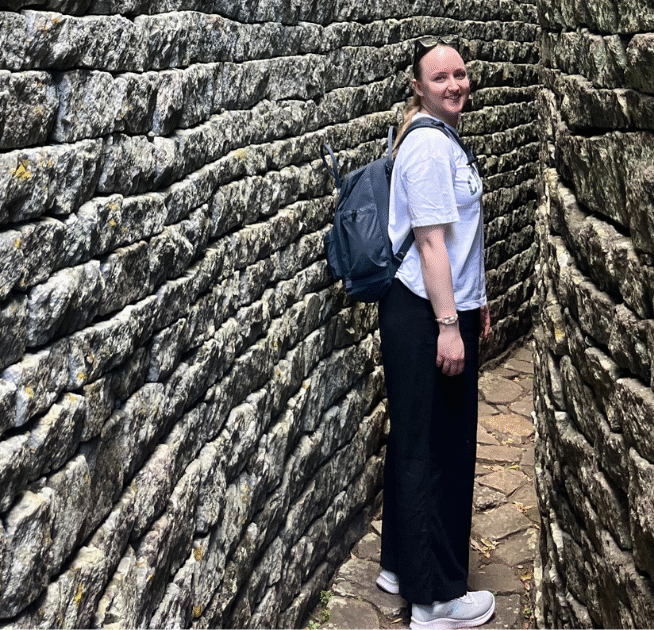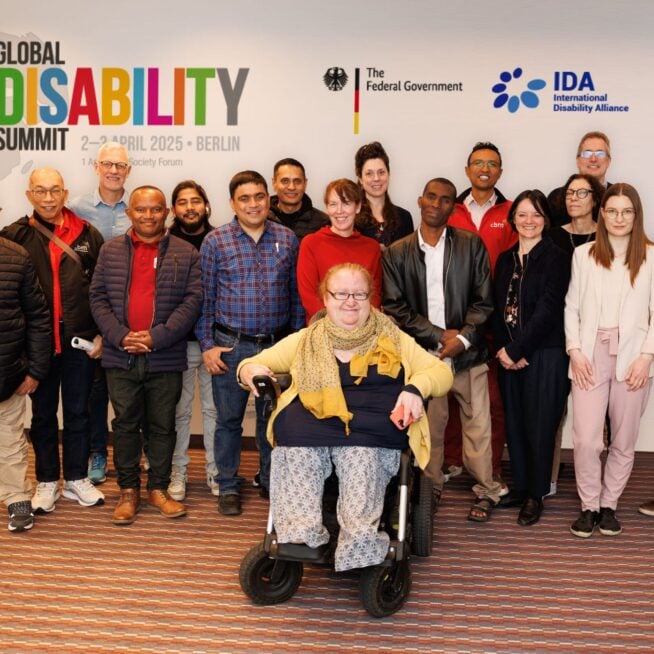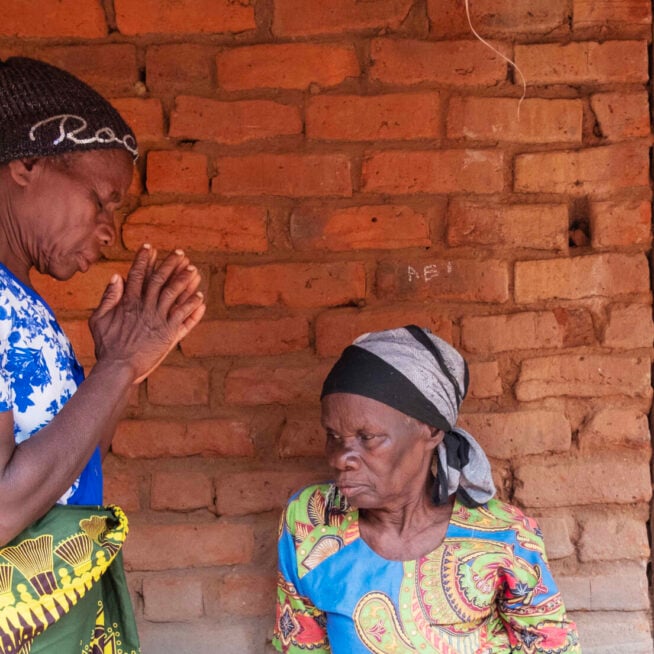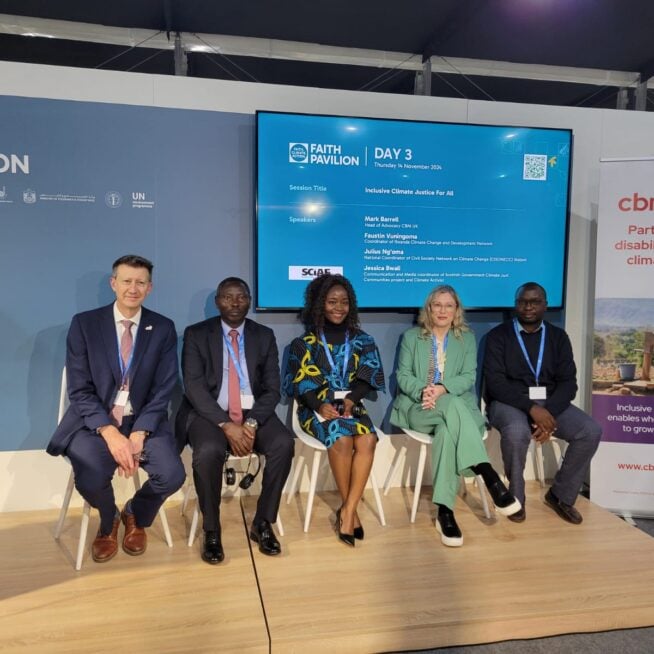Want to transform lives with us? Stay in touch and hear about our news, activities and appeals by email!
Preventing fistula and improving maternal health in Nigeria
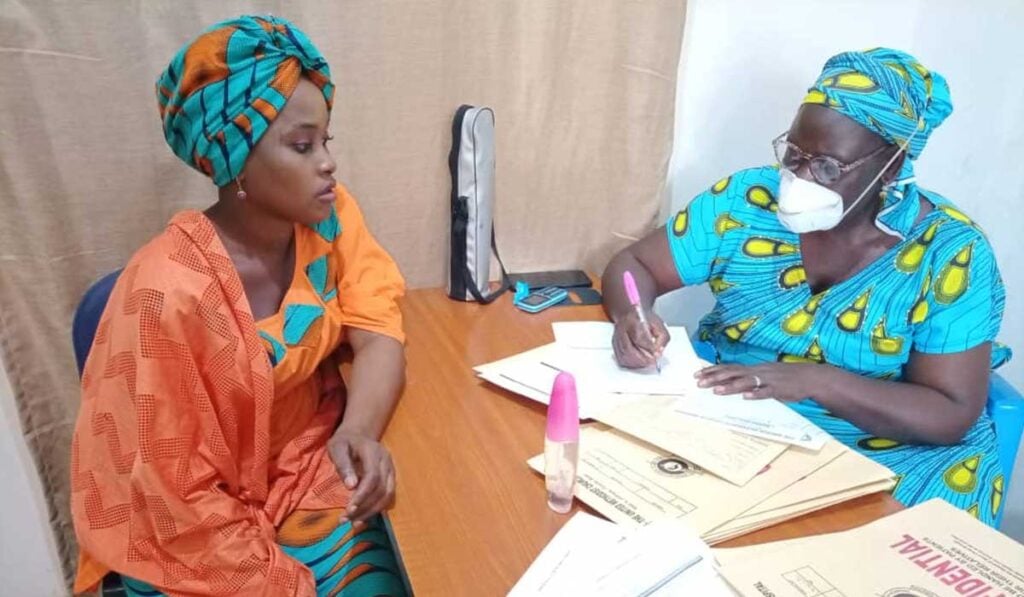
Obstetric fistula is a debilitating condition affecting women and girls, causing incontinence and leaving them prone to infection. It is usually the result of prolonged labour and lack of maternal healthcare.
It’s estimated that 150,000 women and girls are living with fistula in Nigeria. The stigma around incontinence means that many women feel ashamed and isolate themselves from others, not realising that fistula is a medical condition that can be treated.
CBM is working with two Nigerian partner organisations, Survive Fistula Healthcare Foundation (SFHF) and ECWA Vesico Vaginal Fistula Centre (ECWA), to improve access to quality maternal and new-born health services in Nigeria, including preventing and treating fistula. Keep reading to hear about some of the project highlights from January-June 2021!
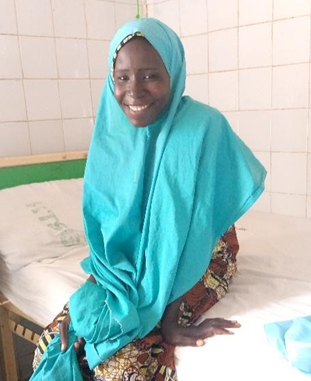 21-year-old Barira has a physical disability and lives with her husband who has a visual impairment. During her 4th childbirth in 2021, she developed a tear, or ‘fistula’, due to complications during an emergency episiotomy at her local health centre.
21-year-old Barira has a physical disability and lives with her husband who has a visual impairment. During her 4th childbirth in 2021, she developed a tear, or ‘fistula’, due to complications during an emergency episiotomy at her local health centre.
This condition left her incontinent. She found it incredibly difficult to cope, particularly as the leaking urine caused a foul odour. She returned to her parents’ home. Fortunately, she heard about free treatment of fistula at a health centre supported by CBM’s project, where she had a successful operation to repair the tear. Now the fistula is healed, she’s happy and relieved.
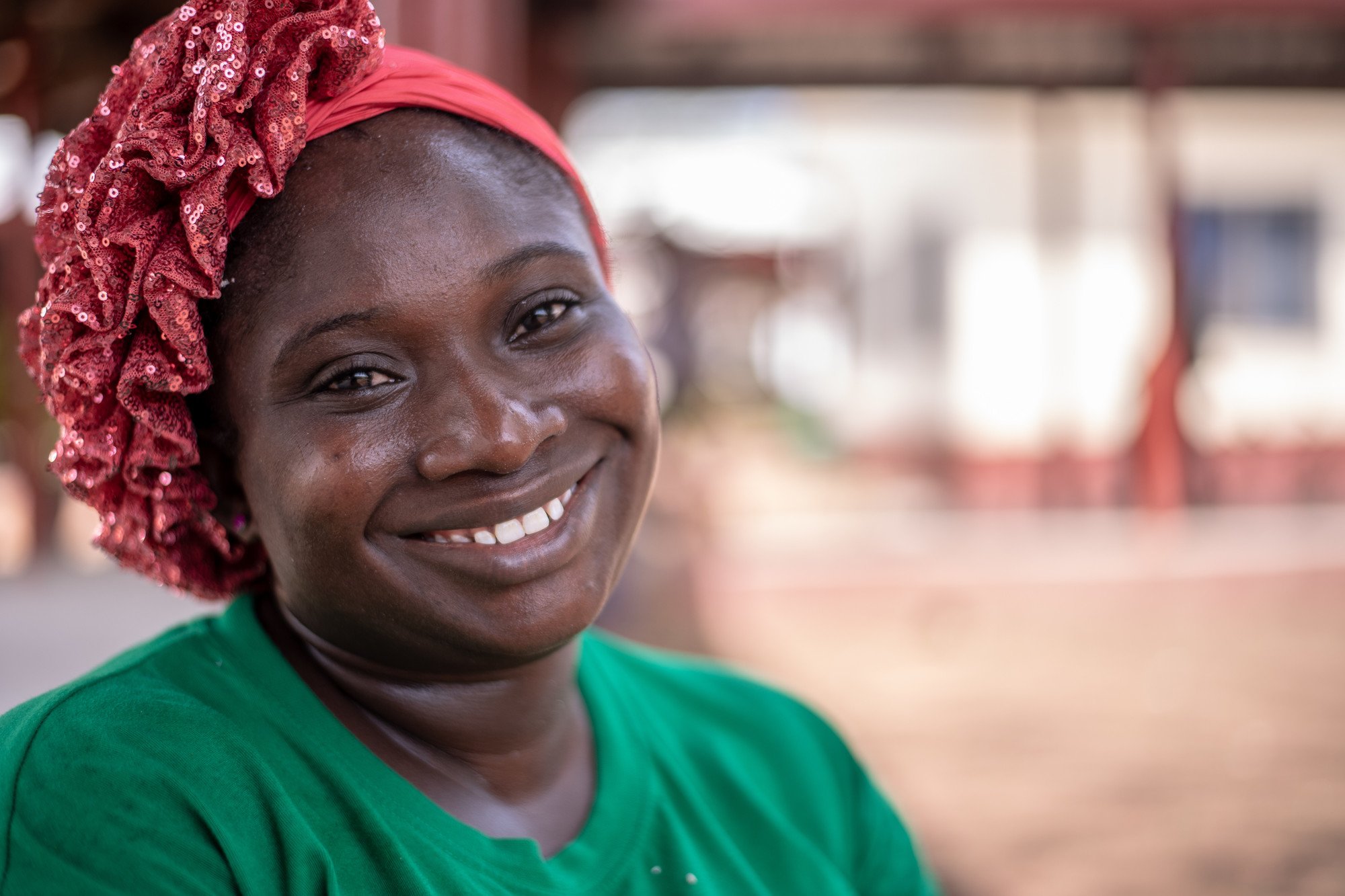 Jemilat was one of the first participants in the CBM/SFHF program in 2019 and returned to the hospital to speak with the women scheduled for fistula surgery, to share her experience and reassure them.
Jemilat was one of the first participants in the CBM/SFHF program in 2019 and returned to the hospital to speak with the women scheduled for fistula surgery, to share her experience and reassure them.
“I know how scared I was before my surgery and how people encouraged me, you know you know it is not easy coming to the hospital and not knowing the outcome, but I was hopeful. When I was discharged from the hospital and I knew I was free from fistula, my joy knew no bounds, so when I was called to speak with these women, I was happy to share my experience and also to give them hope because I knew what I passed through myself.”
Surgeries and support
Over 200 maternal health surgeries were carried out through our partnership with SFHF between January-June 2021, including 181 fistula surgeries– the majority of these women were discovered, and referred for treatment, through the community outreach events.
Women that come for maternal health surgeries are provided with dignity kits containing a pair of slippers, toothpaste, toothbrush, soap, detergents and body cream, to make their stay more comfortable and there are provided with 3 meals a day as well as money to pay for their transport to hospital.
SFHF have also been distributing assistive devices, including wheelchairs, tricycles and crutches, to self-help groups in the FCT that have been set up through the project.
Awareness raising to improve women’s health
Raising awareness of sexual and reproductive health and rights is vital to help women make informed decisions about their health and in preventing conditions like fistula. Between January and June 2021, SFHF carried out 16 community outreach events in communities, in market places, village squares and health facilities. They covered topics like the importance of antenatal care, safe childbirth, fistula treatment, the dangers of some traditional practices and support for people with disabilities during pregnancy and childbirth..
The community awareness raising activities are delivered by Community Health Action Teams (CHATs), whose members are recruited from these communities. This gives them vital understanding of the local context and means they can facilitate discussions in local languages including Hausa and Gbagi. During these events, the team also work with communities to identify women in the area who might be living with fistula, referring them for treatment.
Engaging community leaders and securing their support has been a vital part of making these sessions successful. Another technique has been to provide household items, such as cleaning materials, to the community members as a way of encouraging them to attend.
Our partner ECWA promoted understanding of fistula via radio and TV announcements in English and Hausa encourage women living with the condition to come for treatment and support. They have also been working alongside people with disabilities to produce accessible resources to help raise awareness about fistula, including pamphlets, posters, t-shirts and wrist bands.
Training health workers
In the first half of 2021, selected healthcare workers (CHEWs), midwives, nurses and doctors from ECWA’s partner hospitals and government health facilities in Gombe and Taraba States were trained in the prevention of obstetric fistula and also in the identification of women with fistula and of high-risk pregnancies. This training was vital in increasing the capacity of health facilities to deliver screening, prevention and treatment of fistula.
Doctors and nurses were selected from health facilities to carry out fistula surgery outreach camps, as part of their two-month practical training on diagnosis and surgical operation of fistula. All partner hospitals were also provided with surgical beds, to increase capacity and enable more women to come for fistula surgeries.
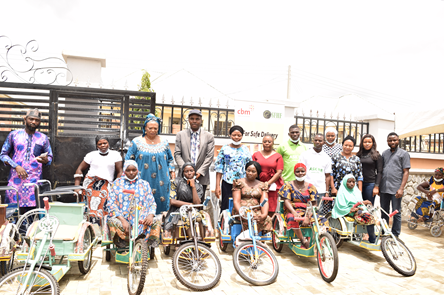
Improving accessibility for women with disabilities
Women with disabilities face particular challenges in accessing maternal health care as health care facilities are often inaccessible to them. With SFHF, we are providing technical support and overseeing the development of health facilities to improve accessibility by:
- Ensuring that there are ramps at all entrances to the health facilities.
- Training health workers on care for people with disabilities – 83 health workers were trained on inclusive-SRH services and a select group of people with disabilities were trained in SRH and the rights of people with disabilities.
- Working with DPO Deaf Women Association of Nigeria (DWAN) to engage a volunteer sign language interpreter who will be visiting health facilities to improve communication with pregnant women who are deaf.
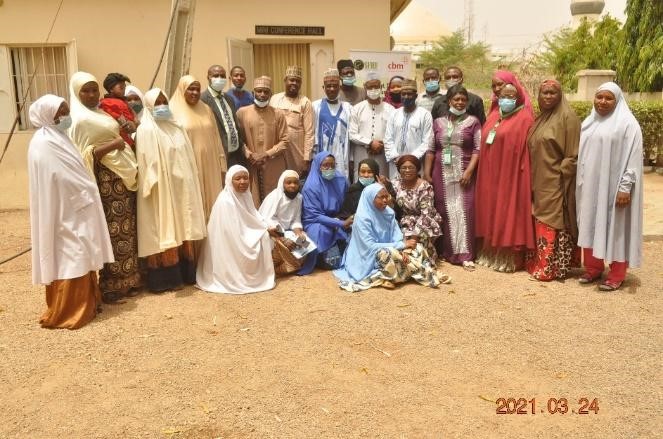
ECWA has been working in partnership with local women’s groups and Disabled People’s Organisations, to ensure that women and girls – including those with disabilities – are educated about maternal and child healthcare.
This involved training 40 members from religious groups, DPOs and secondary school teachers in Gombe and Taraba States, to become women’s health champions in their communities – including helping to raise awareness about the treatment and prevention of fistula.
Hear more stories from community champions in Nigeria in our blog.
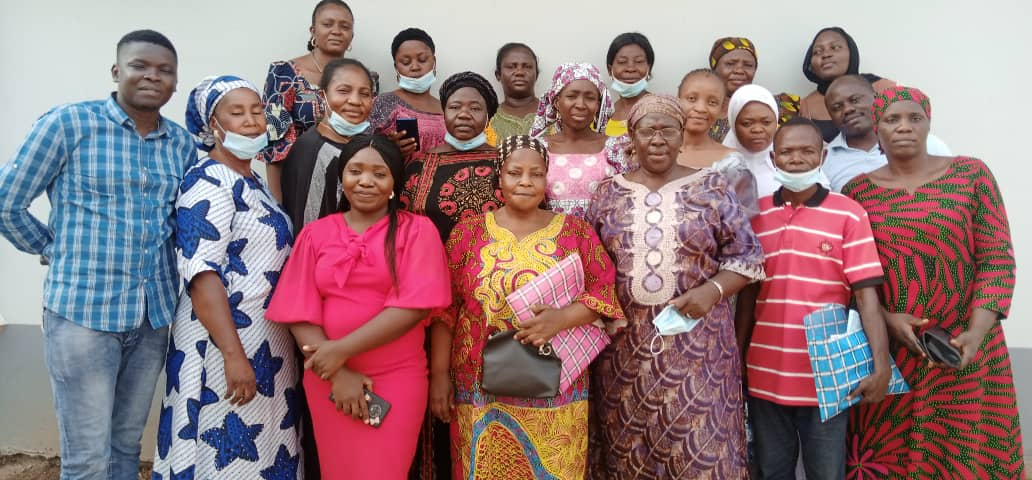
Understanding barriers to accessing maternal health care
As well as delivering support to women directly, the project aims to improve understanding of the barriers women face in accessing maternal health services, which informs effective advocacy with government to overcome these issues. As part of this work, community dialogues were conducted in 16 wards in both Federal Capital Territory (FCT) and Katsina state, with a total of 1,425 participants. They engaged community leaders, women leaders, youth leaders, market women, health facility committees, health providers and people with disabilities.
Participants discussed the barriers to accessing maternal and child health services in their communities and possible solutions to those challenges, agreeing on community actions to address the issues. These discussions also included educating community members on fistula – its causes and how it can be prevented and treated.
These dialogues found that, in most communities, the major reasons for women not seeking maternal and child healthcare were:
- financial constraints,
- lack of support from husbands
- distance to travel to health facilities
- local health facilities cannot meet demand, due to a lack of health workers, equipment and electricity supply.
Find out more about our fistula projects in Nigeria.
Images: 1st – A fistula patient is registered for treatment at UMCN Hospital Jalingo Taraba State. 2nd – Barira after fistula surgery. 3rd – Jemilat visiting other women at hospital. 4th – Self-help group members receiving assistive devices at SFHF office. 5th – Health workers attending training on disability-inclusive maternal health services. 6th – Midwives, nurses and doctors that attended training on the prevention of fistula, in Tarab State.

